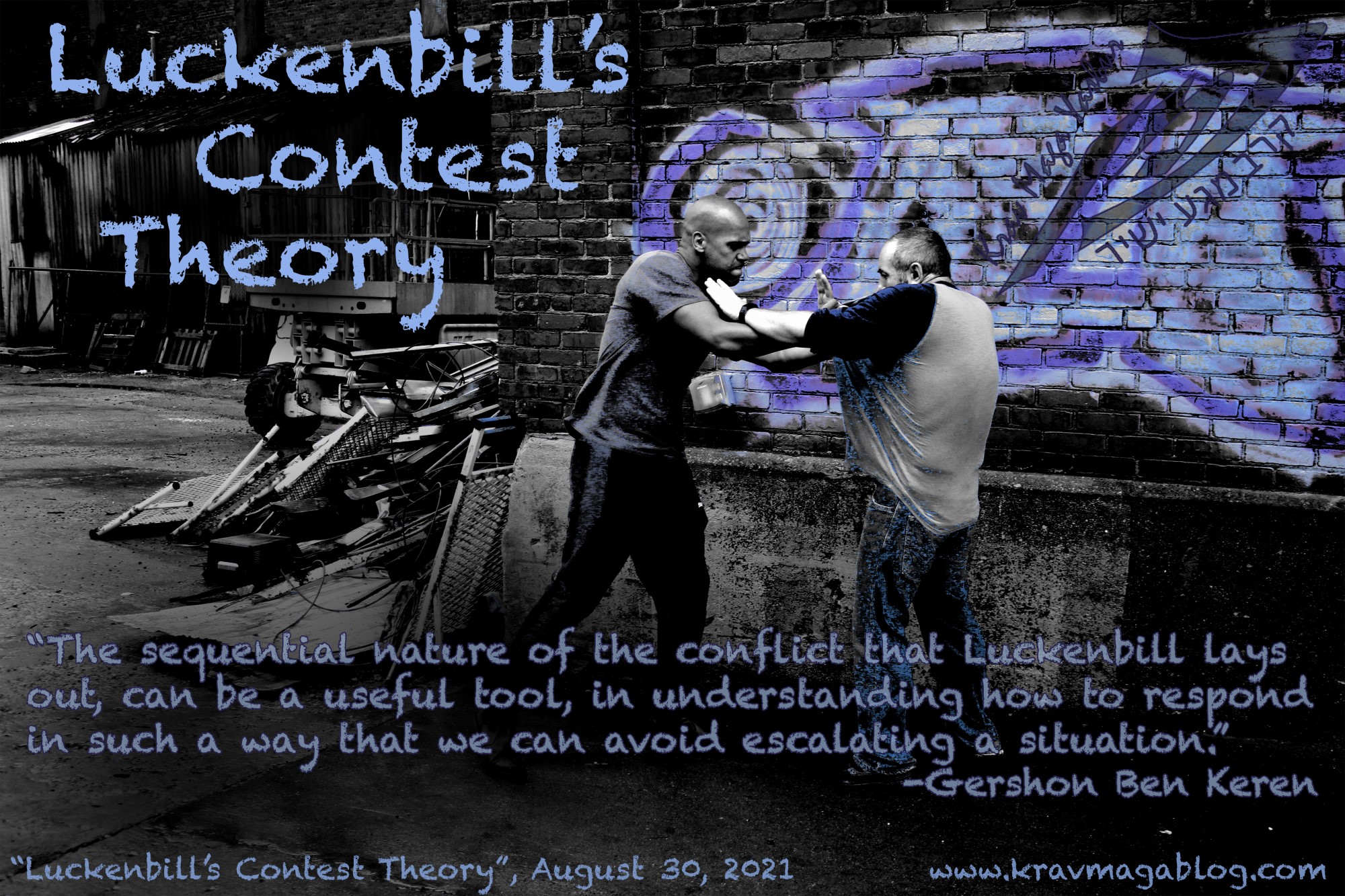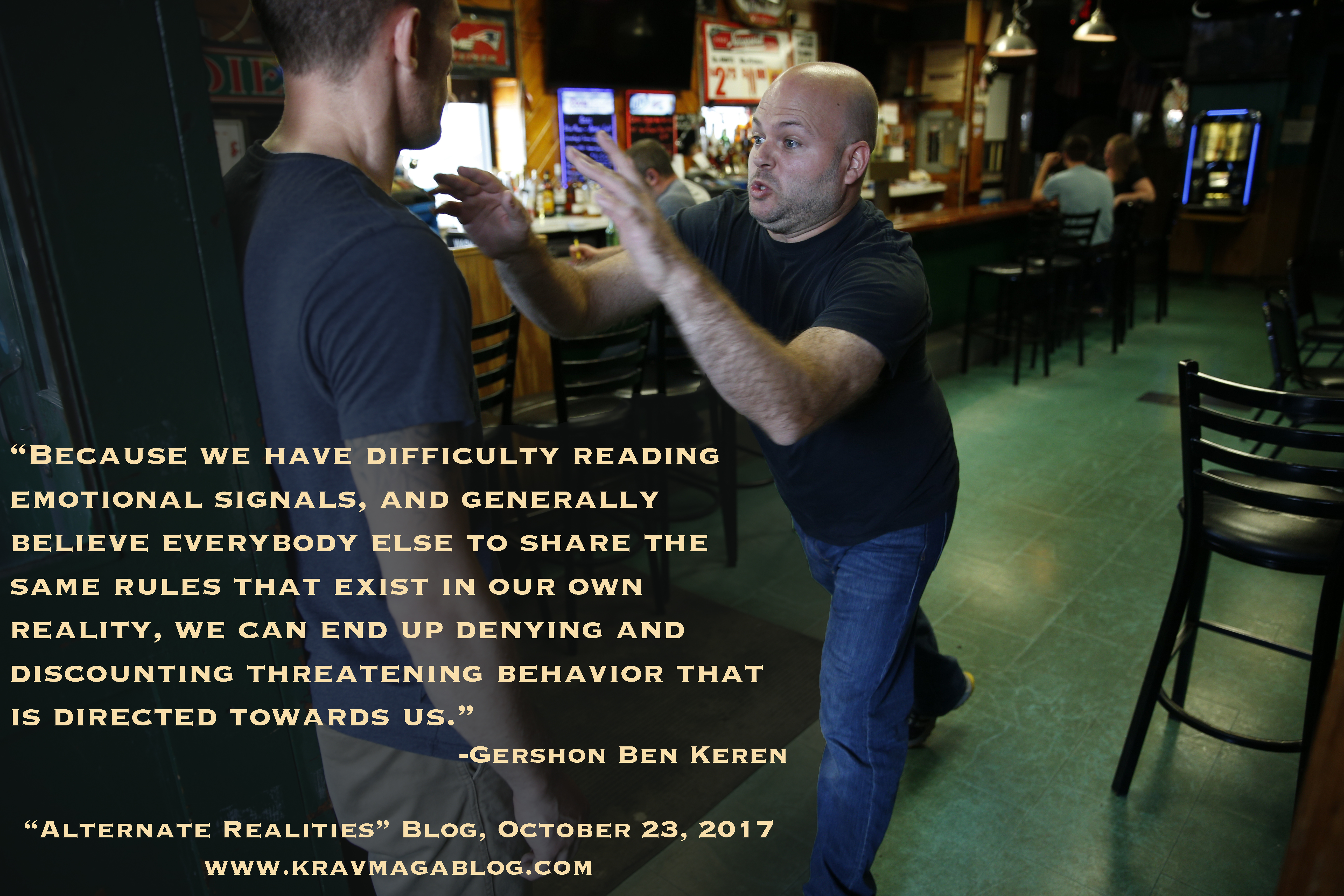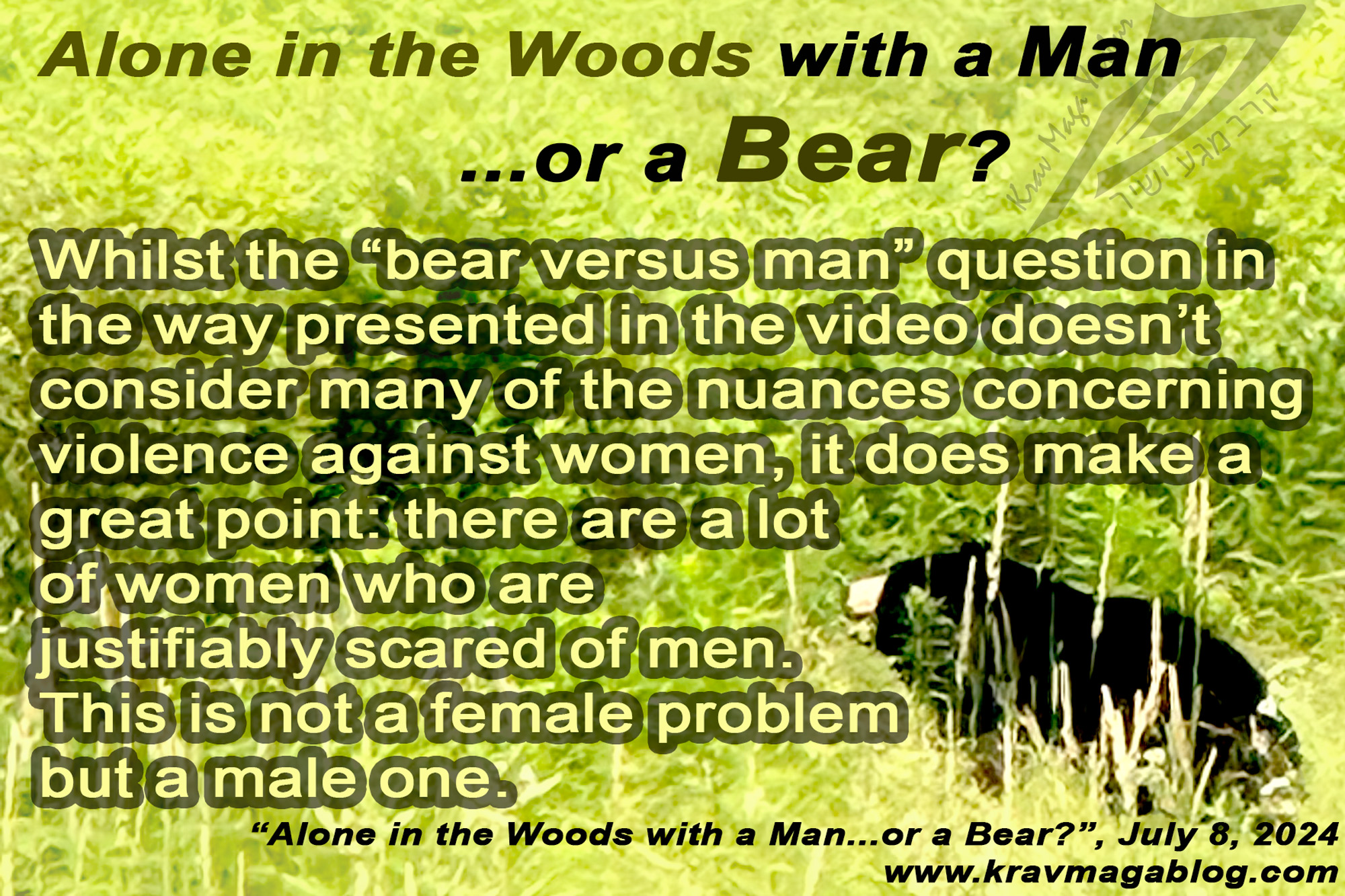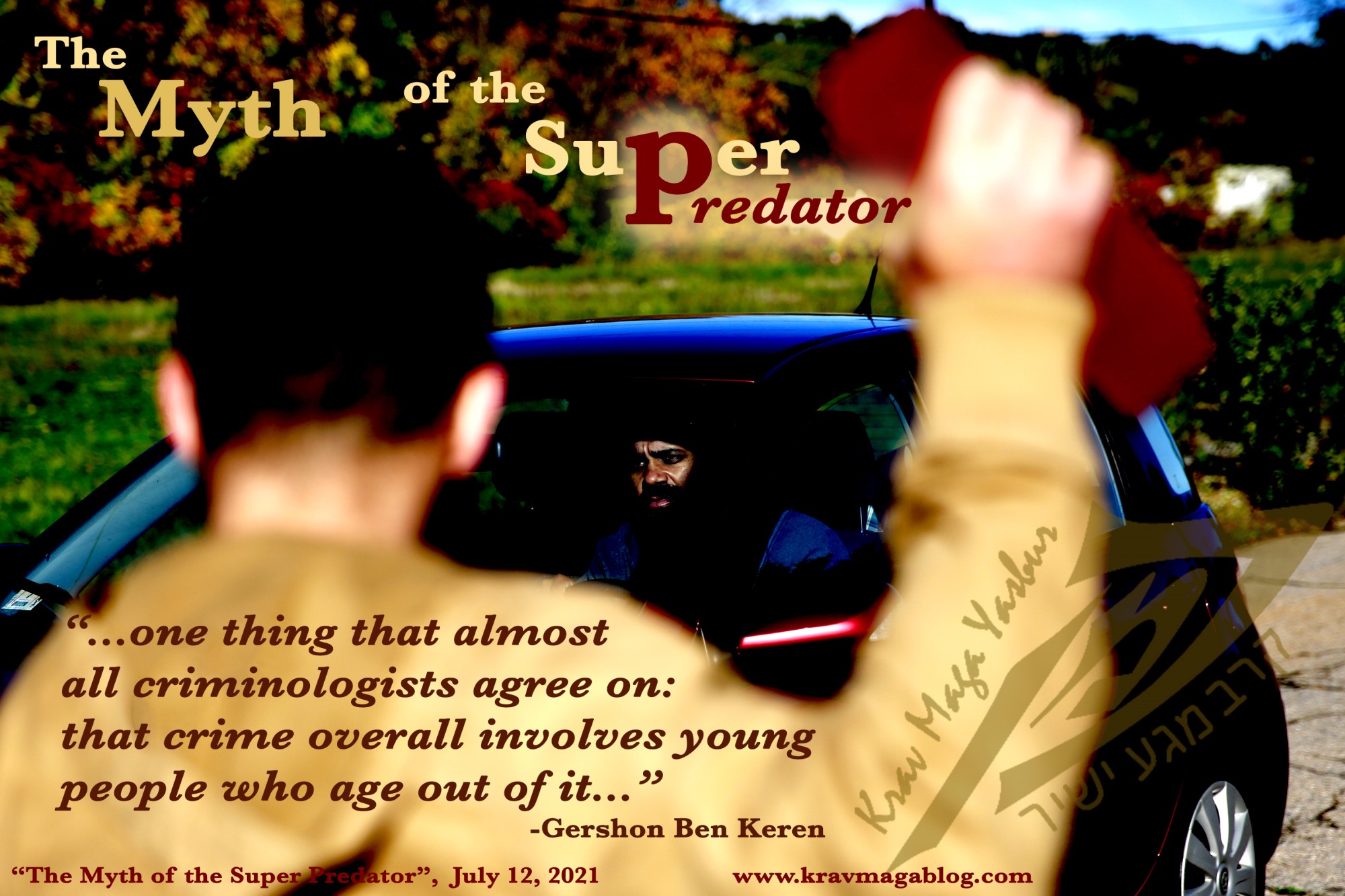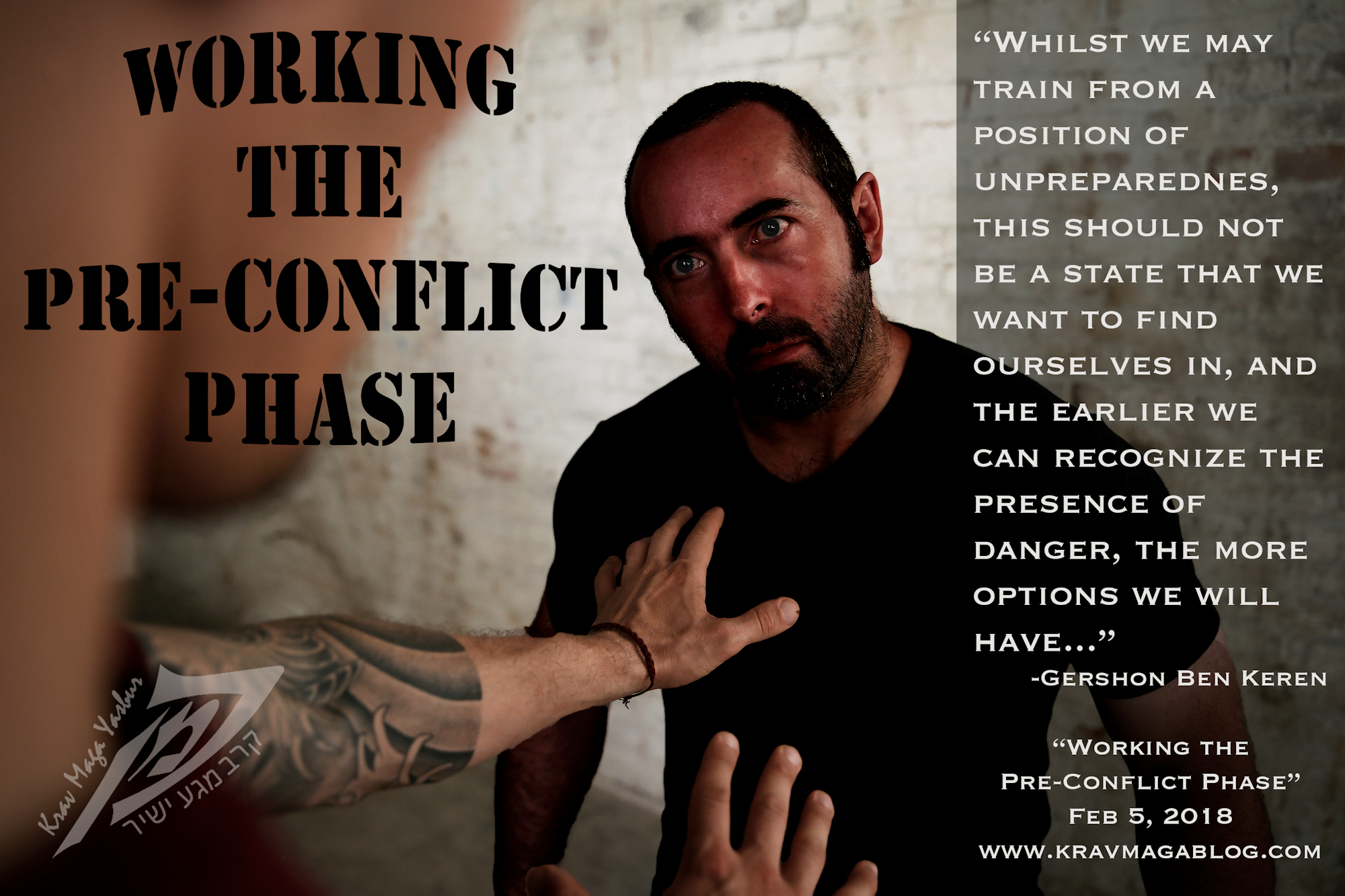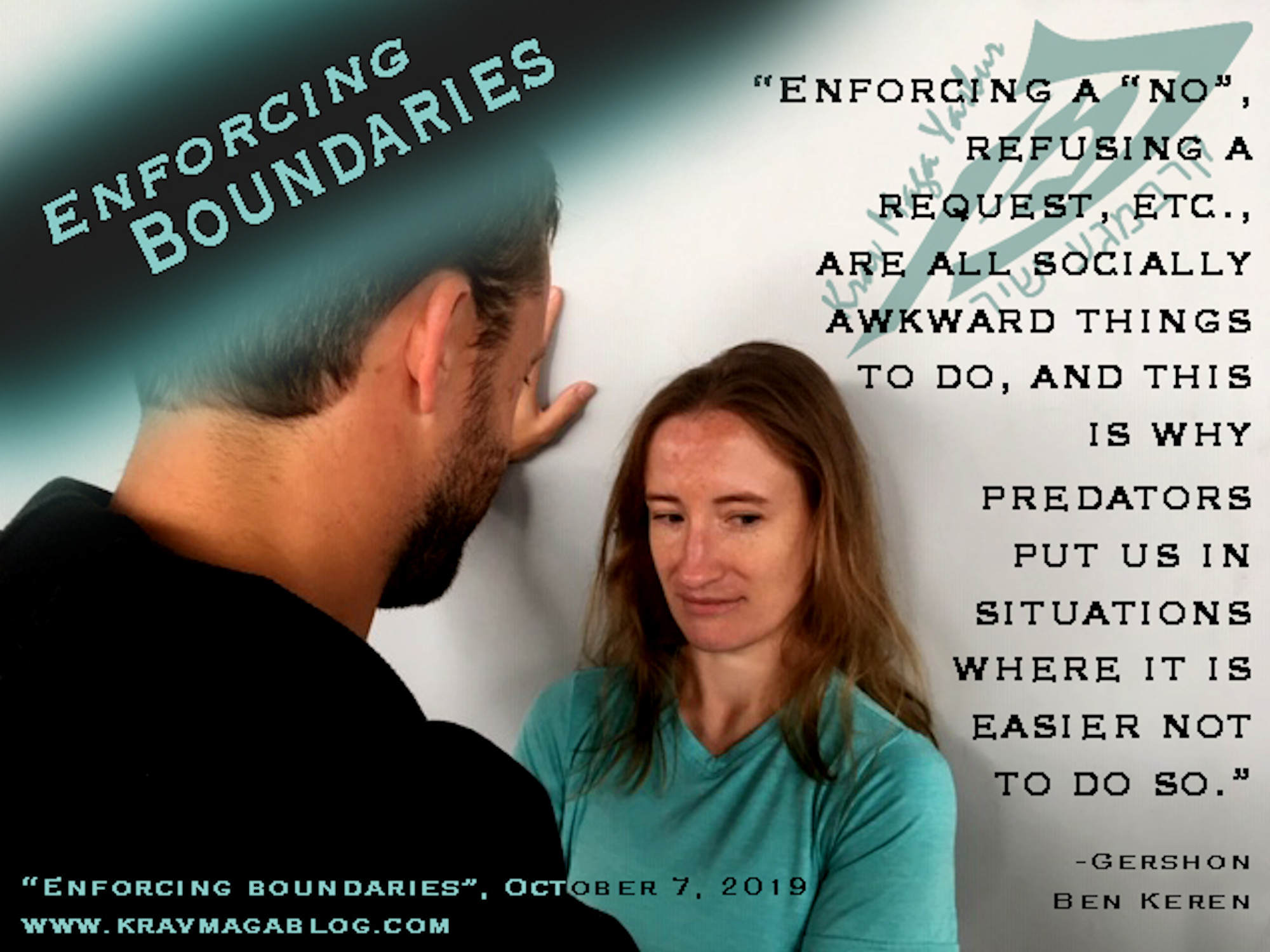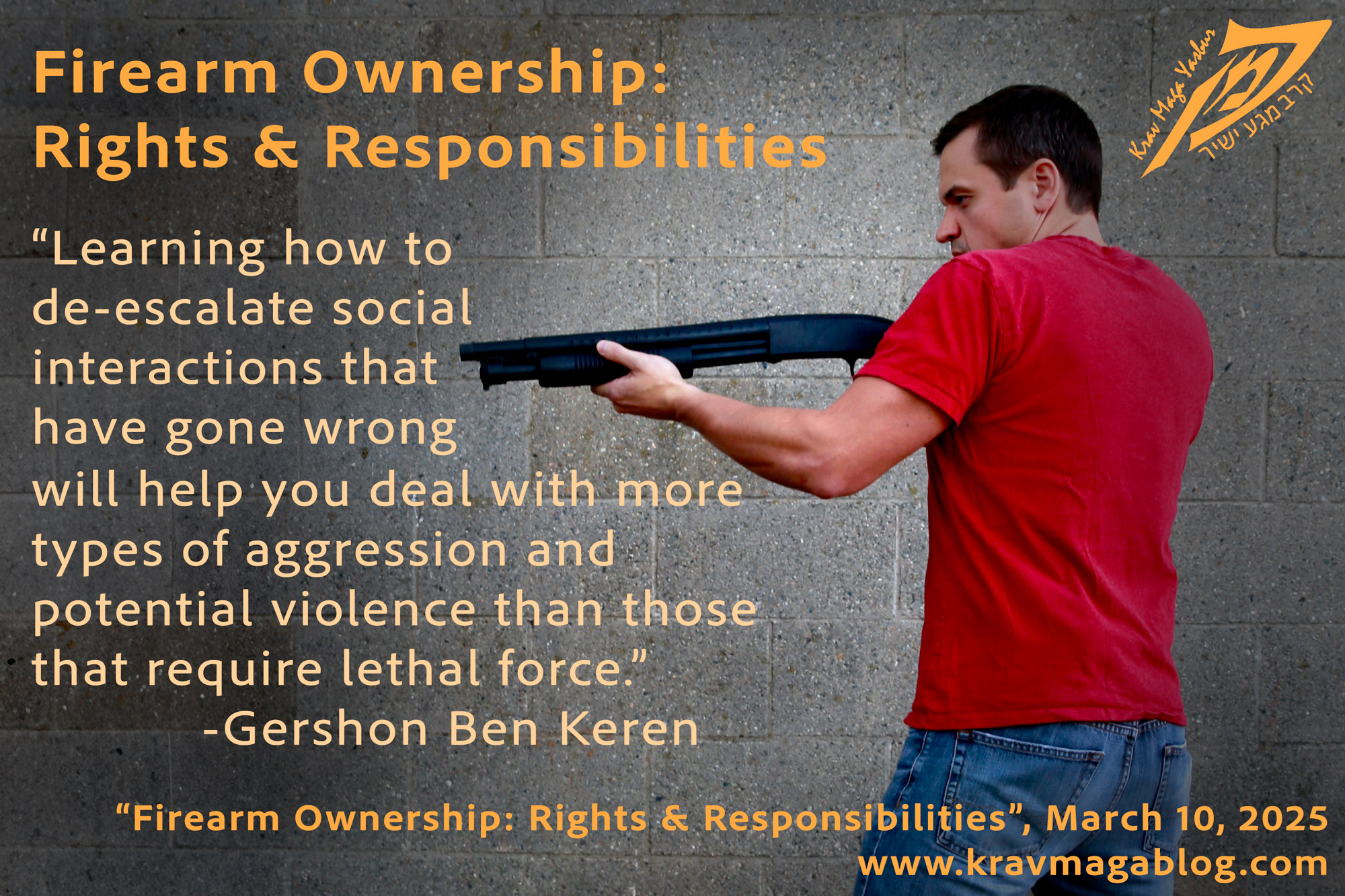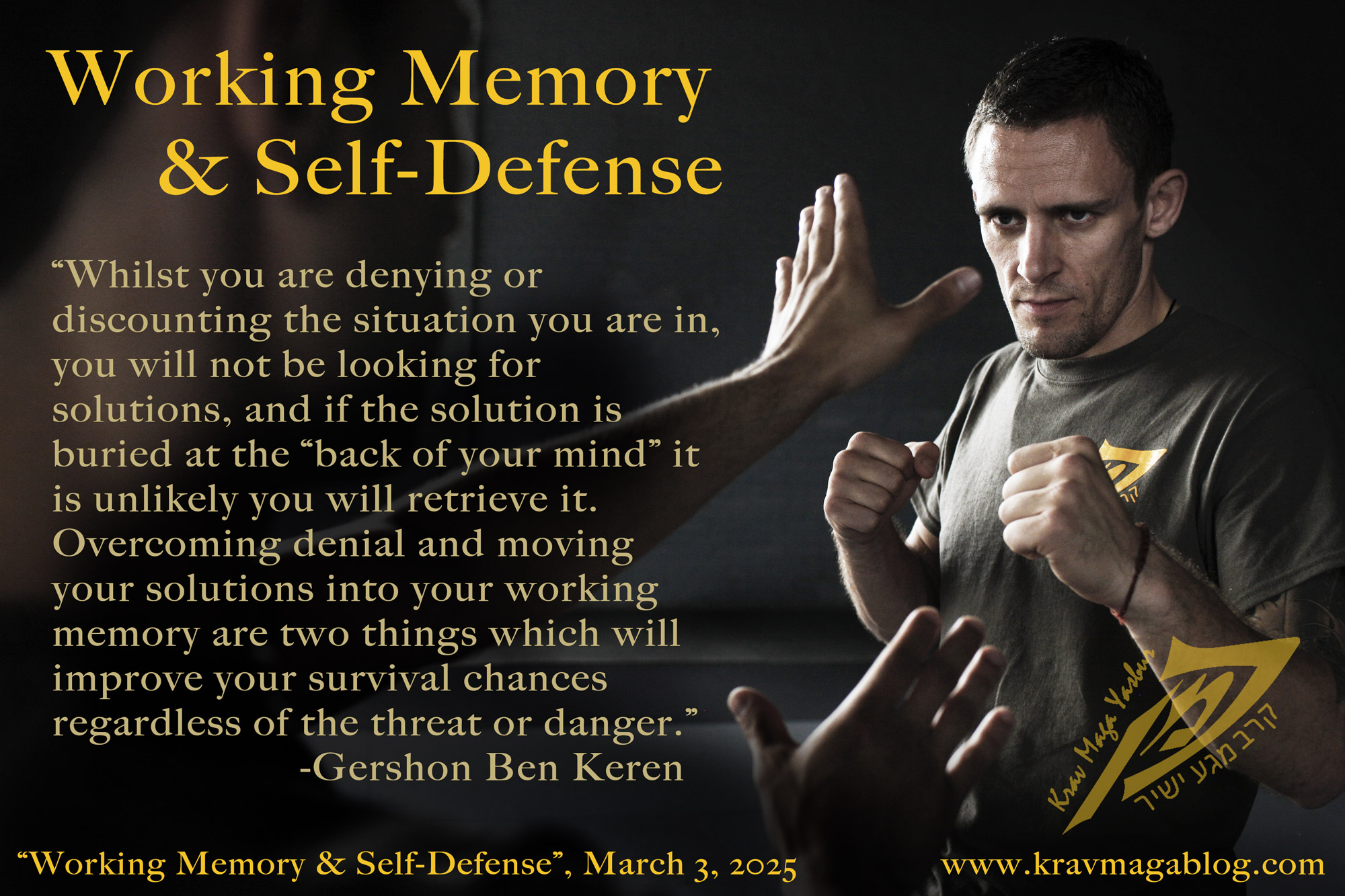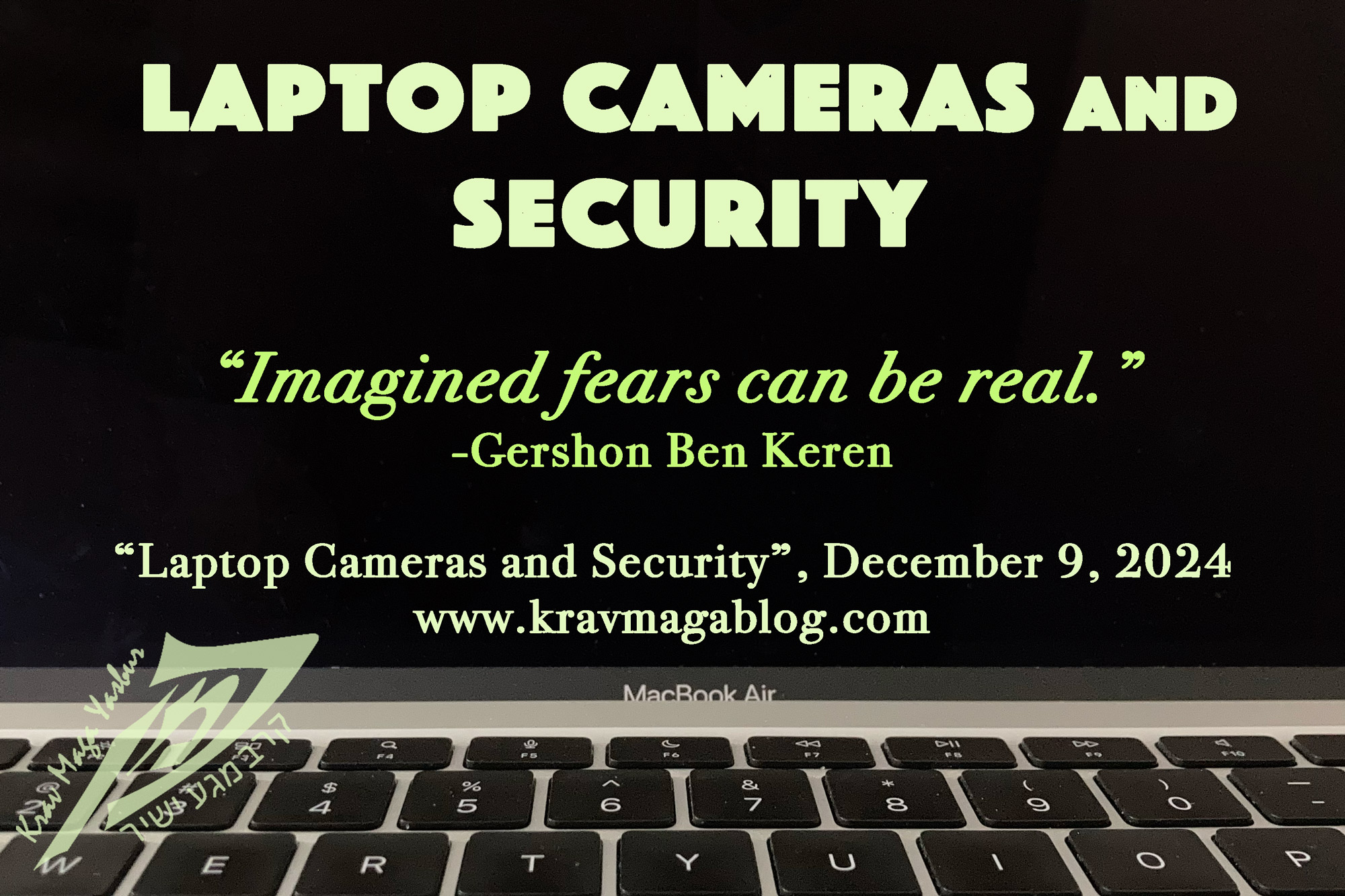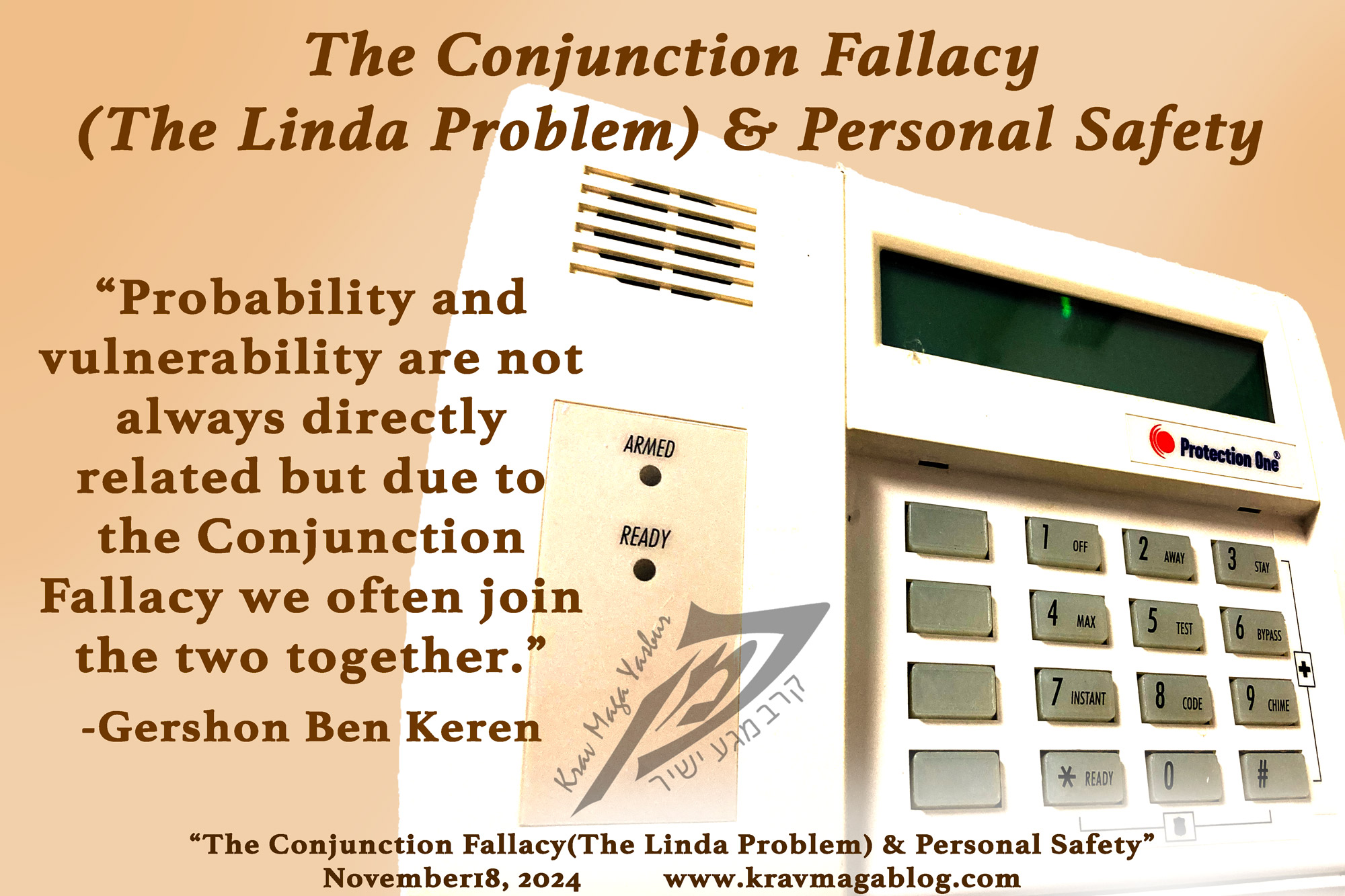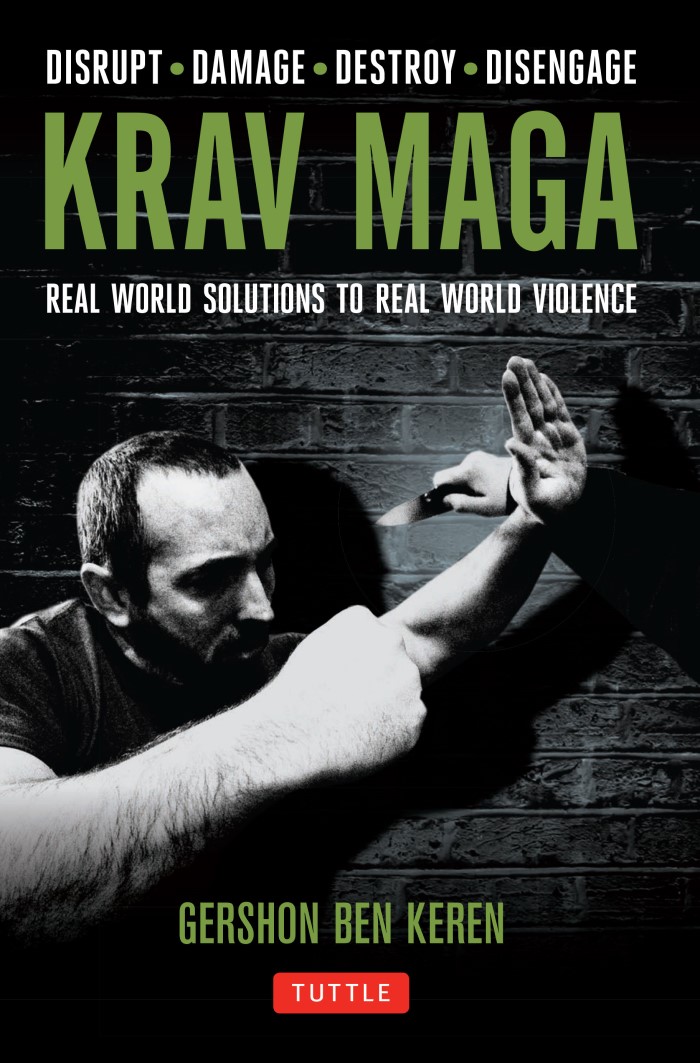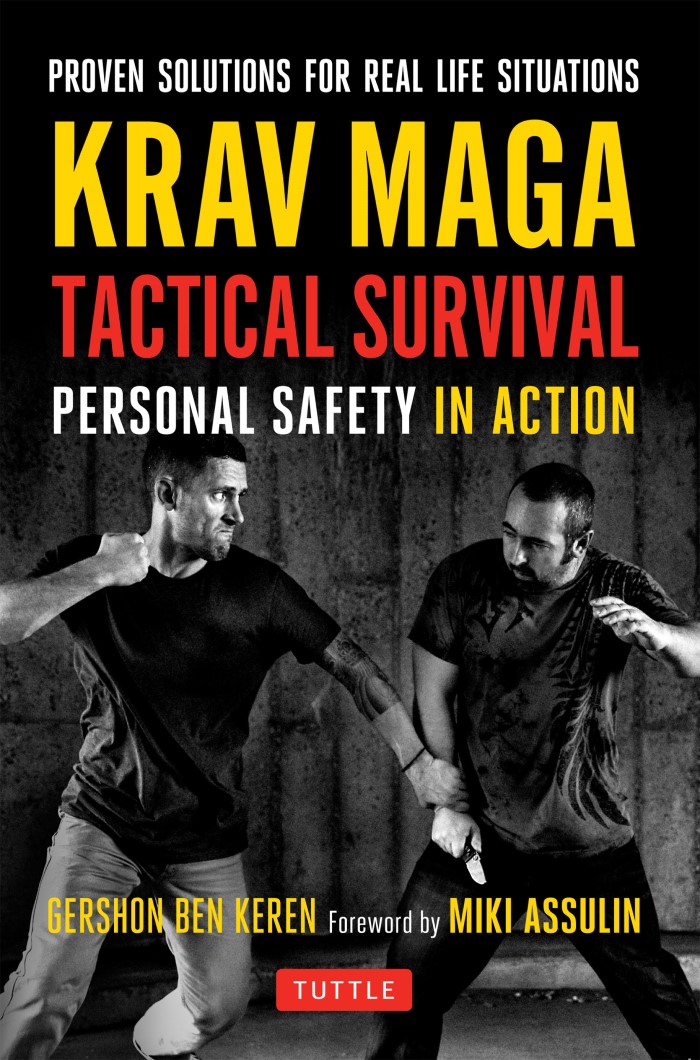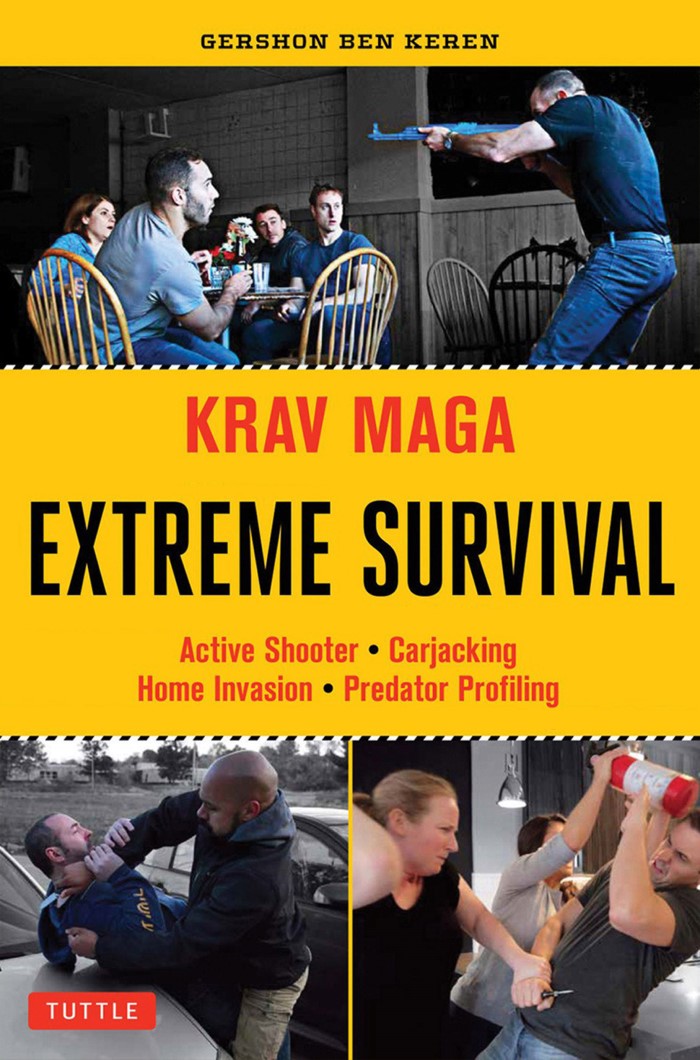Enforcing Boundaries, is an article written by Gershon Ben Keren, a 5th Degree Black Belt in Krav Maga, who teaches Krav Maga in Boston, MA. He has also authored three Amazon best-Selling Books on Krav Maga.
Dealing with a verbally aggressive confrontation is socially awkward; if you don’t experience some feelings of embarrassment, self-consciousness and discomfort, then you’re probably quite experienced in dealing with such situations e.g. you’ve worked in a customer-facing role where you’ve had to deal with difficult individuals and/or you grew up in a neighborhood were aggressive confrontations were part of your daily life, etc. When I first started working door security in bars, pubs and clubs I tended to flip-flop between an apologetic, excuser and discounter of bad behavior, in order to avoid such confrontations, and an authoritarian tyrant who enforced every minor rule and punished the slightest transgression – whether it was inadvertent or deliberate – in order to ensure that I wasn’t taken advantage of. It took me some time to find my feet, and get the balance right, so that I could be effective in doing my job; most things in life involve finding a happy medium. Over the past few weeks, I’ve had several conversations about boundary setting, and the what, how, and when of enforcing them and I’ve found that there’s a degree of confusion about both under- and over- enforcing them e.g. it seems that we often find ourselves swinging between two extremes, where we either over-react, and possibly escalate a situation unnecessarily, or deny/discount a danger or threat that needs to be dealt with. In this article, I want to look at ways in which we can effectively set and enforce boundaries, so that we can protect ourselves against those who mean us harm, whilst avoiding escalating and elevating situations because we feel we need to stand up for ourselves in situations that don’t require it.
The first thing to note, concerning boundary setting, is that predatory individuals who mean us harm will take advantage of our politeness, our desire to avoid causing a scene, and/or our reluctance to call them out on their behavior(s). When we consider that many individuals who want to either cause us or our family members harm are people we know, then it is understandable why we might be hesitant to raise questions about the way they behave towards us e.g. we don’t want to appear ungrateful or suspicious of a soccer coach who seems to have taken a special interest in one of our kids, or question the complementary but flirtatious manner which a friend of our partner’s seems to use when interacting with us, etc. It is easier to excuse these things away as being innocent, or even an over-reaction/embarrassment on our part, rather than asking the deeper questions, that may result in more sinister answers – most of us don’t want to acknowledge the danger in the world, and the fact that we and others we know may be subject to it. Predatory individuals know that we set boundaries – or that we think we do - however they also know that most of the time we hope that these will simply be “respected”, as a social convention, and that we have little appetite for enforcing them. I remember reading an account of a near 4-hour rape ordeal, where a woman, who knew she was being followed, stopped and pretended to be on her mobile phone hoping/believing that the person following her would respect the fact that she was in a conversation and wouldn’t interrupt it, i.e. they wouldn’t cross this implicit boundary, etc. I’m certainly not blaming her for being victimized, but it was a mistake to think that somebody who was prepared to commit a gross violation of her person, would respect such a social boundary. When we consider that most child molesters and sexual assailants are friends or acquaintances of their victims and share a common social circle, etc., enforcing boundaries in such settings becomes even more complex e.g. do we really want to think about our partner’s best friend who keeps trying to get us on our own, or an overly-involved teacher as a potential threat to us or our family members, or is it easier to believe we’re just being paranoid?
We have all dealt with people who want to test the validity of our “no”, who try to relentlessly sell us on an idea that we’re not comfortable with. I have lost count of the instances I have witnessed self-entitled and arrogant men try to sell the idea of sex with them to a reluctant woman - one of the joys of working in bar and club security. Whilst I applaud persistence, and brushing off failure in the sporting arena, it is something that in other settings is socially distasteful and unacceptable. If somebody repeatedly expresses disinterest in another person’s actions and behaviors, then that persistence could be defined as stalking and harassment – they are crossing boundaries.
Risk is the intersection of threats, vulnerabilities, and assets (in this case ourselves and our family members are the assets). Unfortunately, there are many situations where it is impossible to reduce the threats that we face, so we are left at addressing our vulnerabilities, and this is where setting and enforcing boundaries is so important. It is impossible for every woman who goes out socially to avoid individuals who don’t accept her “no” or her clear signals of “no interest”, and this means that the only way to deal with such individuals is to reduce the vulnerabilities that they try and exploit. If your “no” is something that can easily be turned into a “yes” then a green light is being given to those who want to test whether you can be easily be taken advantage of. It’s not fair that there are those out there who engage in such practices, or fair that anyone has to deal with their sense of entitlement, however until a societal shift occurs where such behaviors are eliminated, boundaries need to be set and, where necessary, enforced.
Many people have a fear that if they enforce a boundary, they might escalate a situation. This could happen, and that’s the socially awkward part, that predatory individuals rely on us trying to avoid. However, it is the other person who is escalating the situation, not you. If somebody is treating you in a manner that is unacceptable to you, and as a reaction to you enforcing a boundary they become aggressive/emotional towards you, that is their issue, and it is usually preferable to receive their reaction at this point, rather than later on. When I talk with survivors of rape and sexual assaults, I often hear very simple statements of regret, such as, “I wish I’d just refused to have that drink with him”, “I wish I hadn’t agreed to let him into my house”, etc. This is not to apportion blame in any way to those who have been victimized (that blame lies with their aggressor), but to illustrate that the earlier on in an encounter a boundary is enforced, the more likely it is that violence can be avoided – causing offense to someone is far better than the alternative. It is not fair, that these actions and behaviors, must be engaged in by those that are being targeted, but as stated, reducing the threats we face is rarely an option, and our only alternative is to eliminate our vulnerabilities.
Enforcing a “no”, refusing a request, etc., are all socially awkward things to do, and this is why predators put us in situations where it is easier not to do so. Sometimes, we are just dealing with a pushy individual who has found that persistence gets them what they want, sometimes it is a predator who intends us harm. Either way, it is socially unacceptable – our “no” should be respected and if it isn’t we shouldn’t care that standing by it causes offense.
0 COMMENTS